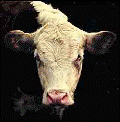Animal Science, Department of

Department of Animal Science: Dissertations, Theses, and Student Research
First Advisor
Kathy Anderson
Date of this Version
7-2019
Document Type
Thesis
Abstract
A deeper understanding of student demographics, motivation, and outlook of online vs. face to face courses in Animal Science is needed to allow educators to facilitate greater student success. The purpose of this study was to investigate student factors which effected their final grades. The following courses were surveyed at the University of Nebraska- Lincoln Animal Science Department: Animal Products (ASCI 210), Anatomy and Physiology of Domestic Animals (ASCI 240), Introduction to Companion Animals (ASCI 251), Companion Animal Behavior (ASCI 271), Companion Animal Nutrition (ASCI 321), Equine. Nutrition (ASCI 322), Equine Reproduction (ASCI 342), Animal Welfare (ASCI 370), Processed Meats (ASCI 410), (n=139). The survey utilized a 5 part likert-type scale; (1) strongly disagree, (2) disagree, (3) don’t know, (4) agree, (5) strongly agree with questions measuring student motivation in scales of intrinsic motivation, self-determination, self-efficacy, career motivation, and grade motivation. Additional questions relating student demographics (gender, ethnicity, experience, area of study, e.g.) were included. Focus groups were then conducted with participating students to analyze student insight on factors affecting their overall final course grade after participation in the survey.
Survey analyses and student final grades were analyzed by Spearman Correlation Coefficients to observe correlations and p-values of student demographics, motivation, and online vs. face to face student success. Students with increased motivation in self-efficiency, self-determination, and grade motivation showed a tendency of higher final grades. No significant correlations were found in student demographics with final grades. The method delivery, face to face (n=101) or online (n=38) had no difference in final course letter grades. Focus group results concluded students were more successful in Animal Science courses when they were equally motivated intrinsically and extrinsically. The greatest factor effecting student motivation was instructor motivation and enthusiasm presented toward students. These data indicate student final grades appeared to be influenced greater by certain motivations, rather than demographics or methods of delivery. The results of this study will allow educators to identify motivators, to increased success in student learning in Animal Science.
Advisor: Kathy P. Anderson


Comments
A THESIS Presented to the Faculty of The Graduate College at the University of Nebraska In Partial Fulfillment of Requirements For the degree of Master of Science, Major: Animal Science, Under the supervision of Professor Kathleen Anderson. Lincoln, NE: July, 2019.
Copyright (c) 2019 Haylee Lavoie